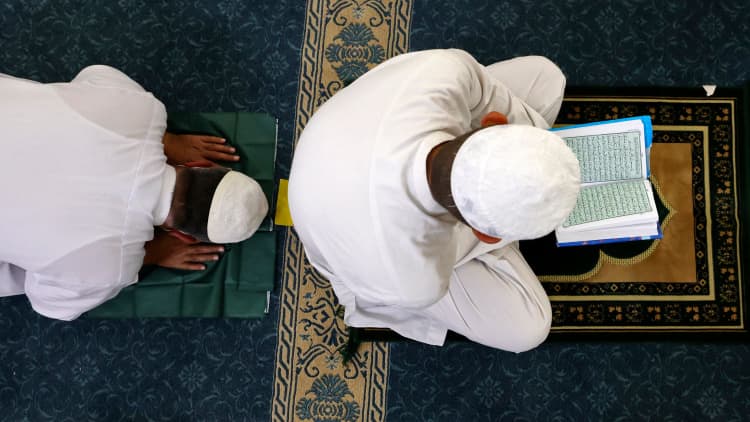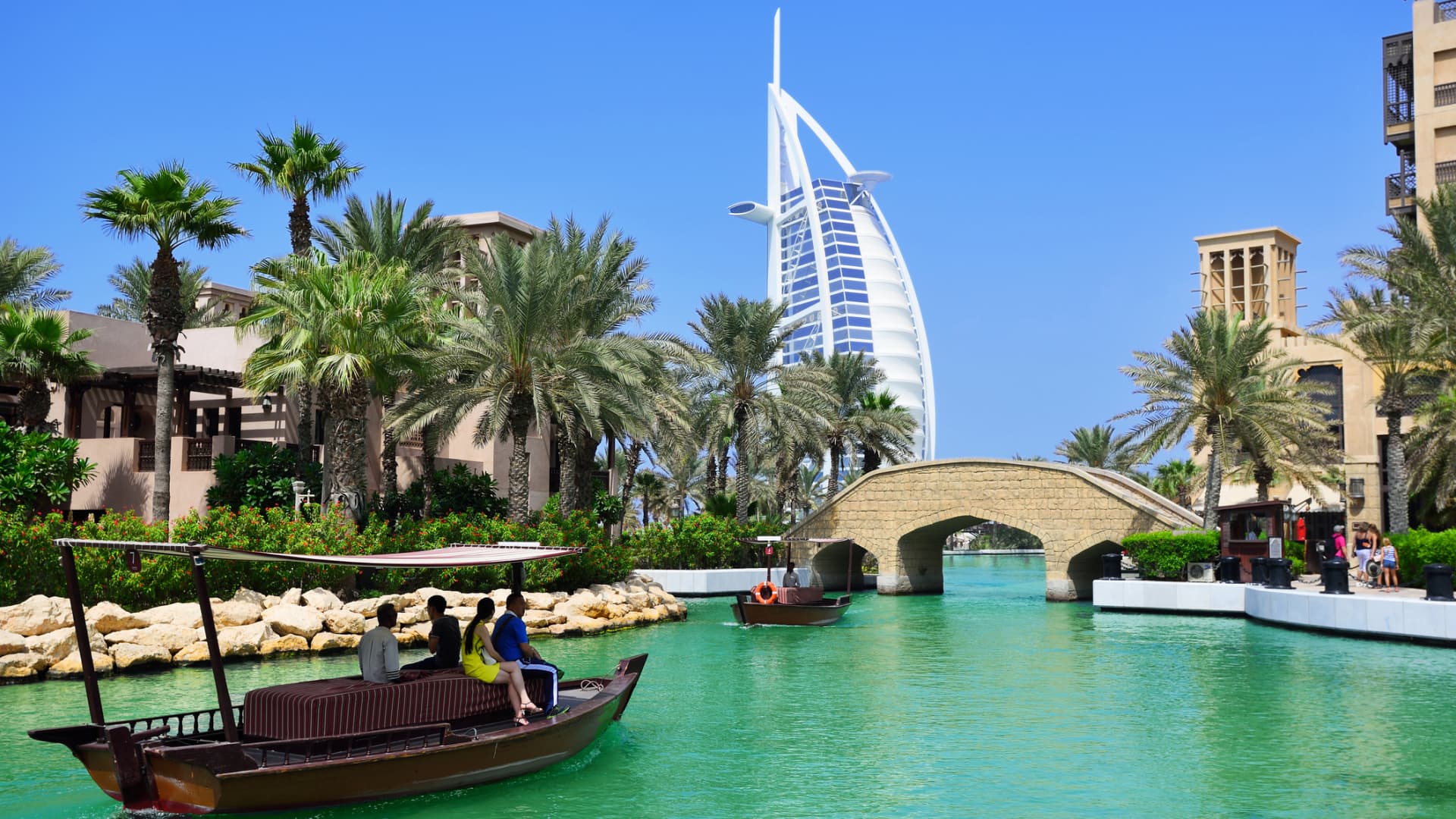Media, not the hotels themselves, often label hotels like Burj Al Arab as “six-star” or “seven-star” hotels.
Waitforlight | Moment | Getty Images
DUBAI, United Arab Emirates — Dubai is scrapping its 30% tax on alcohol sales for the rest of the year, the emirate’s municipality announced Monday, the latest move in a series of liberalizing policy changes over the last few years aimed at boosting tourism and attracting more foreign residents.
“Dubai Municipality has temporarily stopped collecting the 30% fee from alcoholic beverage companies for a period of one year from the beginning of 01/01/2023 to the end of 12/31/2023. The companies authorized to sell in the Emirate of Dubai have been notified of this decision,” Dubai Municipality wrote in a post from its official Twitter account.
The move is likely a bid to increase tourism and stimulate more business among both visitors and residents as Dubai pushes forward in its goal to become the “happiest place on Earth.” Booze is notoriously pricey in Dubai, with a pint of beer often costing $15 and a glass of wine as much as $20 or more.
Local alcohol distributors announced the news first, with Dubai-based alcoholic beverage chain Maritime and Mercantile International (MMI) writing on its Facebook page on Sunday, “You can now: save 30% municipality tax on alcoholic beverages. We have reflected this across all our pricing!” It added that the UAE’s 5% sales tax (VAT) still applies, however.
It also said that personal liquor licenses, previously a requirement for all Dubai residents for purchasing alcohol in shops and costing 270 dirhams ($73.50), are now free. Before Jan. 1, liquor licenses had to be renewed yearly and had a processing time of about four weeks. Buying alcohol in bars however, did not require any license.
It’s not certain whether the new free licenses will still have the same processing times or renewal requirements. Dubai is also the only emirate in the United Arab Emirates that required residents to obtain a liquor license for in-shop purchases; in five other emirates including Abu Dhabi, no license was required, and in the UAE’s more conservative emirate of Sharjah, the sale of alcohol is not allowed.
Some Dubai residents were unhappy about the abrupt announcement, having recently paid the full fee for their yearly license.
“Just done the licensing couple of days back and paid for it. Can someone explain how to this came about? Why wasn’t this mentioned then?!” one Facebook user wrote in a comment on MMI’s post.
“My husband paid for the license 2 days ago, we wish you had said something! And he didn’t get any vouchers as per mentioned on your page and website. Definitely feel cheated,” another user wrote.
One of the users said MMI offered her a free bottle of wine as compensation, which she described as “not acceptable.” CNBC has reached out to MMI for comment.

More broadly, residents celebrated and welcomed the news. The announcement also comes as neighboring Saudi Arabia ramps up its apparent drive to supplant the UAE as the tourism and commercial capital of the region. Saudi Arabia is still a dry country, and its strict laws and largely conservative society are barriers for many prospective foreign residents.
The UAE, by contrast, and in particular its commercial capital of Dubai is home to a diverse 90% expatriate population and has long offered lifestyles comparable to those in the Western world. The city has countless bars, nightclubs and restaurants serving alcohol, conservative dress is not required, every major religion can set up places of worship, and cohabitation before marriage is legal, whereas in Saudi Arabia and some other Gulf Arab states it is not.
Woman sunbathers sit along a beach in the Gulf emirate of Dubai on July 24, 2020, while behind is seen the Burj al-Arab hotel.
KARIM SAHIB | AFP via Getty Images
The UAE also recently changed its Islamic weekend of Friday-Saturday to the Western weekend of Saturday-Sunday, to be in line with much of the rest of the world, and began offering a remote worker visa through the coronavirus pandemic as more people adopted a remote work lifestyle.
“Dubai has been a clear standout in terms of the speed of which its tourism market has recovered since the pandemic,” Karim Jetha, chief investment officer at Dubai-based asset management firm Longdean Capital, told CNBC.
“The decision to suspend alcohol taxes follows moves to change its weekend to Saturday-Sunday and the widening of access to long-term residency visas. As a collective, these initiatives are should boost tourism and encourage more expatriates to think of Dubai as their home,” he said.

